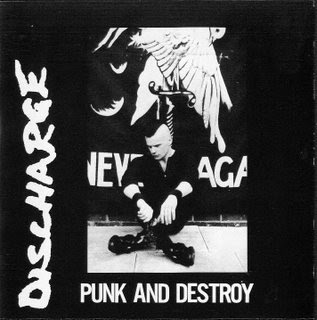4. The Language Barrier.
I did a year of Japanese in high school, but dropped it in favour of studying French. This was partly because of my French ancestry, partly because of my high school French teacher being a pretty cool specimen of teacher, and partly because my Japanese teacher could competitively bore paint off the wall in the olympics for her country. French sounds sexy, my image of French people being relaxed, effortless hedonists, all contributed to my lasting desire to learn this language. I plan to re-commence French lessons at some point in the indeterminate future.
French also has one other major advantage. Although being riddled with difficult to master pronunciation sounds, it uses a familiar looking alphabet, albeit with grave, acute, circonflexe, tréma and cedille thrown in. If aware of the rules of French pronunciation, one can say the words by sight-reading them without knowing their meaning. French, being a European language shares a lot of words with English. Basically, compared to learning Japanese, just the action of deciding to learn French gives you a good head start on mastering the language.
Because everyone knows that Japanese looks like this:
And walking down the street in Japan looks like this:
And a lot of stuff in Japan is a bit, WTF? anyway, so when you're not sure if it's a cultural or language barrier that exists between you, things can get mighty confusing mighty fast.
For those of you who aren't so au fey with Japanese, here's the situation.
Japanese is phonetically an easy language to learn. The vowel sounds are short, there are no weird hissing noises or guttural grunts to contend with.
Grammatically, Japanese is a bit backwards compared to English. Verbs come at the end of sentences, but you can get used to that pretty easily.
Listening can be a bit of a problem, especially living in Kansai, because the local dialect is quite distinctive.
Reading and writing... now there's the problem.
The Japanese "alphabet," hiragana, consists of somewhere between 45 and 47 characters. These represent sounds, and are used to spell words that don't have a kanji (Chinese pictograph). Hiragana is only used for Japanese words, and there is a separate alphabet used to describe the sounds of foreign words, the mutterings of animals or other onomatopoeia. So, just to master the alphabet, you've got to get your head around 90 odd symbols.
Then there's the kanji. To be considered literate enough to read the newspaper somewhere between 2000 and 10000 of these little babies have to be shoved into your brain. They all have a stoke order which must be adhered to. To move your pen up and to the left is totally different to moving your pen down and to the right. Simple kanji may have only one or two strokes, difficult kanji can have up to twenty or more.
Kanji have at least two readings. There's the onyomi reading and the kunyomi reading. The onyomi reading may have four or more sub-readings, all phonetically different, sometimes with different meanings, and the only way you know how to say the character is by it's context. Hence, for the not-so-avid student of Japanese, you get stuck at this point. You could study your head off and conquer this... or you could not. I mean, I have a life, you know. Lots of things to do. People to see, gigs to play, drums to practice, films to make, blah blah... I just can't be arsed. For people who are looking to bonk Japanese girls, this is a major study incentive, as Japanese girlfriends often like their gaijins to speak Japanese to them. But I'm married, and Japanese girls, by and large, are not interested in me.

The other thing about learning Japanese is that this language is spoken... where? Japan. And Japan alone. Learn Spanish, travel South America, learn French, go to New Caledonia or Quebec, learn Japanese and well, that's it. Japan or nothing! Being a native speaker of the global juggernaut of languages, learning second languages doesn't seem as pressing as learning to double kick at 220bpm.
Consider the following Senryū (social commentary poem following the 5-7-5 pattern of haiku):
You look Japanese
But you don't speak Japanese
ARE YOU RETARDED?
In Japan, it is expected that thou shalt speak Japanese despite being obviously not Japanese. The Japanese service industry tends to be staffed by extremely patient people, who will help you flap your way through your terrible inability to make sentences - they might even break out the English if you're lucky. Friends of Asian descent who are not Japanese speakers aren't afforded the same patience, because the Japanese can't process the idea that you might look Japanese but not be Japanese (and anyone who tells you they can tell the difference between different Asian racial sub-groups on sight is deluding themselves).
Anyone who thinks that by virtue of the fact that you have chosen to live in a country means that you should master that country's language within 10 seconds of arriving is a bastard. I'M LOOKING AT YOU, AUSTRALIA.
Not wanting to learn Japanese desperately does have the unwanted side effect of not always being able to express oneself clearly. At the doctor. In the store. At the swimming pool. On the street. All of these places become kind of daunting if your language skills are as crumby as mine. Really looking forward to being able to speak my language.
















